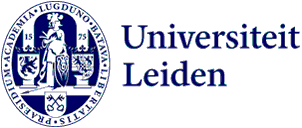
Protests in China: Politicians afraid of not the population but colleagues
That it was students who started the protests in China against its zero Covid policy makes things more dangerous for politicians. China expert Frank Pieke explains the role of students in China, what makes the protests unique and what might happen next.
What is unique about the protests in China?
‘First, they are against central government policy rather than against a corrupt local governor, for instance. Second, it’s unique that students started the protests. That hasn’t happened since 1989 (The Tiananmen Square protests against the Communist Party, ed.) and it immediately makes the protests politically dangerous. The students have an implicit and at times explicit political message. During the protests they have been holding up blank sheets of paper to make it clear they aren’t allowed to say anything about Covid policy.
‘Third, on at least one occasion there have been calls for President Xi Jinping and the Communist Party to step down. We don’t know whether there is widespread support for this, but I don’t expect there to be.’
‘Students are seen as the nation’s moral conscience.’
Why is it relevant that students started these protests?
‘Politically, students in China have a very different role from in Western countries. They are traditionally seen as the nation’s moral conscience. They are young and well educated. This gives them a kind of mandate to say what the best path is for China. So if students protest, this is dangerous for a political leader.’
The Chinese government has announced that it will ease its Covid restrictions. What do you think about that?
‘It’s somewhat surprising. The government says it will stick to the consistent yet flexible Covid measures that the Politburo (central government, ed.) announced two weeks ago. It also said – and that is a typically Chinese thing to do – that local governors have not interpreted and implemented this policy properly but have continued instead with the old, extremely unsubtle policy of mass lockdowns. This is a way to protect yourself from criticism. It works well in China. What they forget to add is that the local governors did this because they are terrified that if they actually implement the policy there will be more infections and they will be held to account.’
‘Xi Jinping’s reputation as the all-knowing leader has been tarnished.’
What do you think will happen next?
‘I think that lifting the lockdowns has taken the sting out of the movement. They have all been fairly small local protests anyway. It’s not yet a political movement and there is no clear leadership. But Xi Jinping’s reputation as the all-knowing leader has been tarnished. And I don’t know where that will lead. If the protest ends with a whimper, I don’t expect any real consequences. But if things do carry on, politicians may say that Xi Jinping hasn’t done a good job and that a solution has to be found. And that is what every political leader in China fears: not the population but colleagues.’
Frank Pieke is Professor of Modern China Studies at Leiden University and a professor at the East Asian Institute in Singapore.
Text: Dagmar Aarts
Photo: ANP
